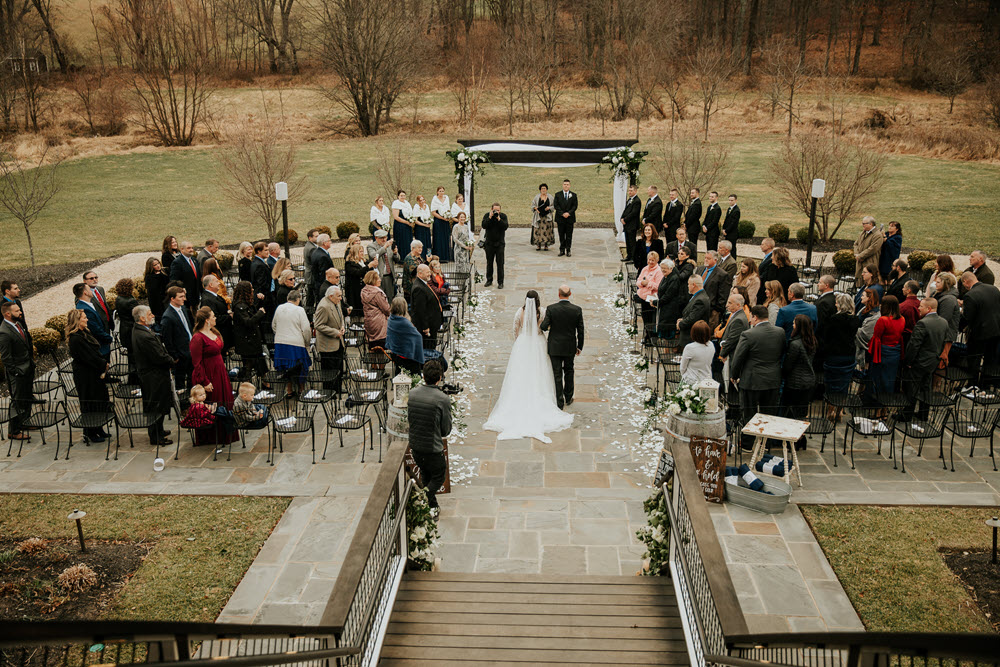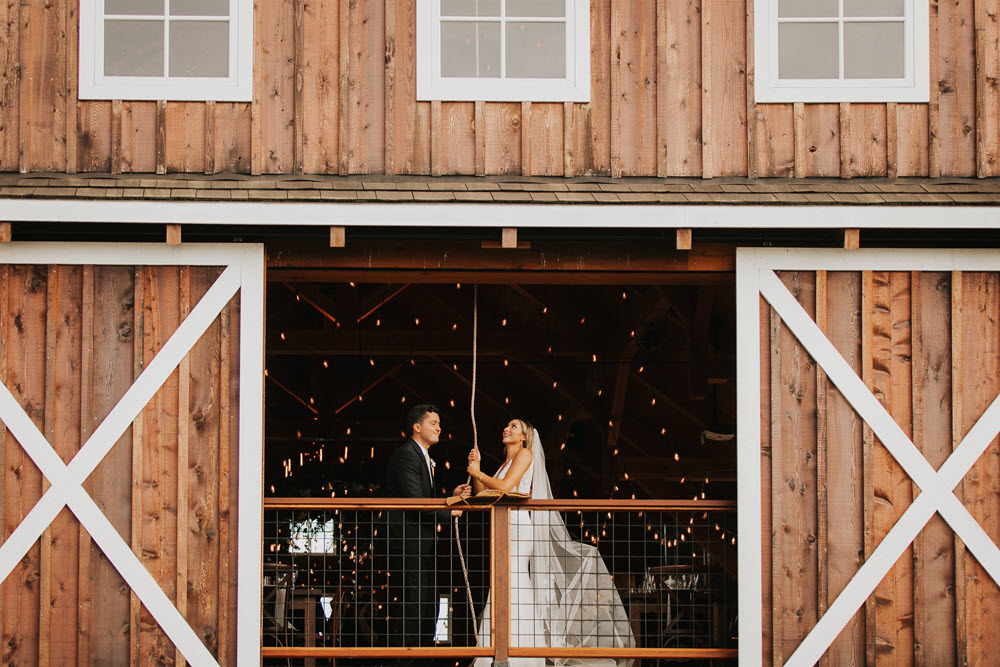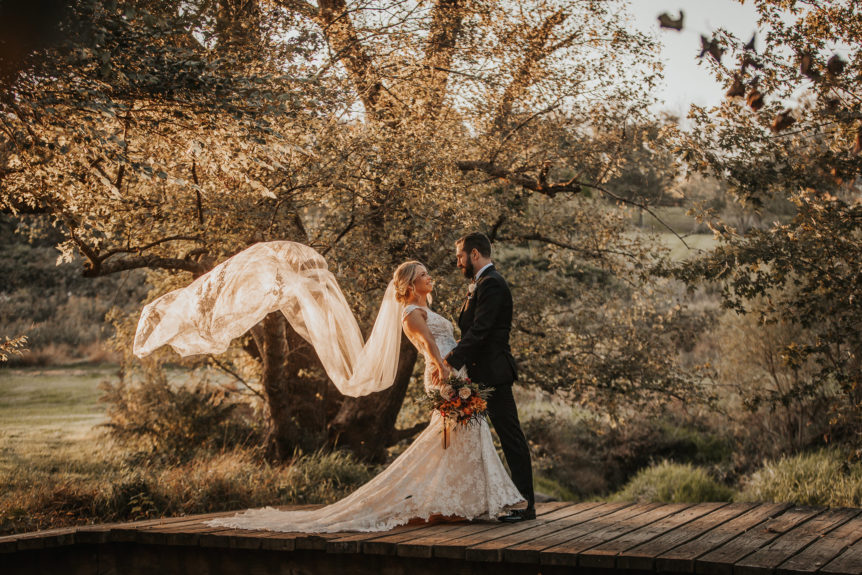By Melanie Walker
Table of Contents
5-minute read
Feeling a bit daunted by the thought of piecing together your wedding day timeline?
Curious about how to make every detail flow seamlessly?
You're not the only couple facing these questions. Planning your wedding is a common challenge, but with some expert help, it can turn from a stressful task into an exciting part of your journey to the altar.
Welcome to Zion Springs, a treasure nestled in Hamilton, Loudoun County, Virginia, boasting over 15 years of expertise in the magical world of weddings. Here, we don't just plan weddings; we breathe life into them. We aim to make your wedding day reflect you as a couple, ensuring it's well-organized and full of personal touches that make it special.
This guide comes from our passion for sharing what we know and begins by helping you tackle the big first steps of planning your wedding. We'll look at choosing the type of ceremony you want and where it should be, which helps shape the rest of your plans. Our straightforward tips will guide you through each step, from picking the perfect location to deciding the size of your wedding. With Zion Springs, you're well on your way to planning a ceremony that beautifully starts your journey as a married couple.
Want to jumpstart your wedding ceremony planning?

Starting your wedding planning: choosing style, venue, and timing
Beginning your wedding planning journey involves interconnected decisions that set the stage for your special day. It all starts with choosing the style of your ceremony. Whether you envision a traditional religious ceremony, a relaxed secular celebration, a culturally rich event, or a modern gathering, this choice will influence every other decision you make. The style you pick reflects your personal story and guides you in selecting the perfect venue. Each type of ceremony has its considerations for space, atmosphere, and setting, whether it's the solemnity of a place of worship, the natural beauty of a beach, or an art gallery.
Simultaneously, think about the size of your wedding. Are you dreaming of a grand affair with over a hundred guests, requiring ample space and extensive planning? Or do you prefer a more intimate gathering, allowing for personalized details in a cozier setting? This decision impacts your venue choice and your budget and planning intricacies.
Once you've envisioned your ceremony style and determined the size of your celebration, setting the date and time becomes your next significant step. It isn't just about marking a calendar; it involves considering seasons, holidays, and personal significance, each affecting the ambiance and logistics of your day. The chosen date and time frame – morning, afternoon, or evening – add their flavors to your celebration, from the freshness of a morning event leading to a brunch reception to the romance of an evening ceremony under the stars.
As you progress through these initial planning stages, you're weaving together the fundamental elements of your ceremony, laying the groundwork for a wedding that beautifully aligns with your vision and love story.

Designing your ceremony: flow, personal touches, and timing
Moving forward with your wedding plans, a central focus is designing the ceremony. This part is where you bring your vision to life, combining a seamless flow of events, personal touches that reflect your bond, and careful time management to create a meaningful and enjoyable ceremony for everyone.
Creating the ceremony flow
Here's a simple outline of how a typical wedding ceremony might go; you can always tweak it to make it your own:
- Guest arrival and seating: Allow guests 20-30 minutes before the ceremony to arrive and find their seats.
- Processional: The bridal party enters, ending with the bride's big moment. It usually takes 5-10 minutes, depending on how many people are in your bridal party.
- Welcome or introduction: The person leading your ceremony, like a celebrant or officiant, usually starts with a short welcome that lasts around 5 minutes.
- Readings and music: Now's the time to include special readings or songs. Set aside 5-10 minutes for this.
- Vows and ring exchange: This is the most important part! It’s when you exchange vows and rings, which typically takes 10-15 minutes.
- The kiss and pronouncement: After you’ve exchanged your vows, the celebrant will announce you’re married, followed by your first kiss as a married couple.
- Recessional: To wrap up the ceremony, you and your bridal party will make your exit.
Incorporating personal elements
- For your ceremony, add personal touches. Write your vows for a special touch. Choose songs or readings that are meaningful to you. You could also include special rituals like a unity candle or sand ceremony to symbolize your union.
Managing time throughout the ceremony
- Pay attention to timing to keep your ceremony running smoothly. Follow your schedule, but be ready to adapt to unplanned moments. Practice beforehand to know how long each part should take. Having a wedding planner or friend act as a timekeeper is helpful. Aim for a good mix of planned activities and personal moments.
As you finalize your ceremony plans, remember this is just the beginning. Next, you'll coordinate with vendors and participants to ensure everything comes together for your special day.
Final stages of preparation: coordination and last-minute checks
As your wedding day approaches, the final stages of preparation involve a combination of coordination with everyone taking care of last-minute details.
Coordinating with vendors and your wedding team: Ensure all your vendors know their roles and when they should arrive. Check their schedules with your photographers, florists, caterers, and others. Also, confirm your decor and seating plans with your wedding vendors and review any final details with your officiant, musicians, or DJ.
Assigning roles to friends and family: Make sure everyone in your wedding party understands what they need to do; this includes roles for the best man, maid of honor, and anyone else in your bridal party. If you have friends or family doing readings or helping guests, check in with them, too.
The final week check-in: The week before your wedding, review everything one last time. Confirm arrangements with all vendors, check your ceremony and reception setup, and go for your final dress and suit fittings. Don't forget to prepare payments or tips for your vendors and pack an emergency kit with safety pins, a sewing kit, and band-aids.
Rehearsing and adapting to changes: Plan a rehearsal a day or two before your wedding to go over the ceremony so everyone is clear on their roles. Be prepared for last-minute adjustments, whether it's a change in weather if you're having an outdoor ceremony, or a vendor cancellation. Having backup plans and being flexible can help you navigate these changes smoothly.
As you tick off these final items and prep for any surprises, you're paving the way for a wedding day that's both smooth and spectacular. All the planning and dreaming you've done is about to come to life, and it's time to kick back, celebrate, and make those memories!
Final week preparation made easy
Ready for your wedding but need a little help with the final details? Our Last-Week Wedding Ceremony Planning Checklist is just what you need! It's the perfect tool to make sure you've got everything in place for your special day. Download it now and turn those last-minute tasks into excitement!

Continuing your journey to the perfect wedding day
When planning a wedding, it's logical to start with the ceremony timeline. Planning this part of your big day is like piecing together the opening chapter of your love story. Sure, it might seem like a big task, but it's an exciting beginning, taking each step to shape the day you've dreamed of.
We've gone through every part of planning your ceremony, from picking the type and place to setting the date and finalizing the details. We've also discussed working with your vendors, making the ceremony your own, and dealing with surprises. We aim to make you feel confident and help you enjoy planning this part of your wedding.
As you move on to the next steps in planning your wedding, things get even more exciting. We'd love for you to keep exploring with us on our Answers and Advice page. Since Zion Springs is an all-inclusive venue, we can host your ceremony and reception, making planning easier. If you're looking for more specific ideas, you might want to read our articles like "Personalizing Your Wedding: How Zion Springs Supports Your Vision" or "From ‘Yes’ to ‘I Do’: A Quick-Start Wedding Engagement Guide." These can give you more insights and tips for your special day.

DJ and Corey’s Summer Wedding

Isabel and Gunter’s Winter Wedding

Rachel and Daniel’s Spring Wedding



